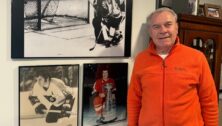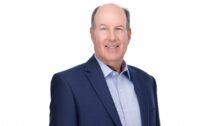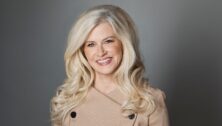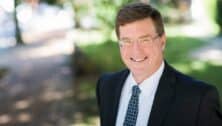Chester County Leadership: Jo-Elle Mogerman, President and CEO, Philadelphia Zoo
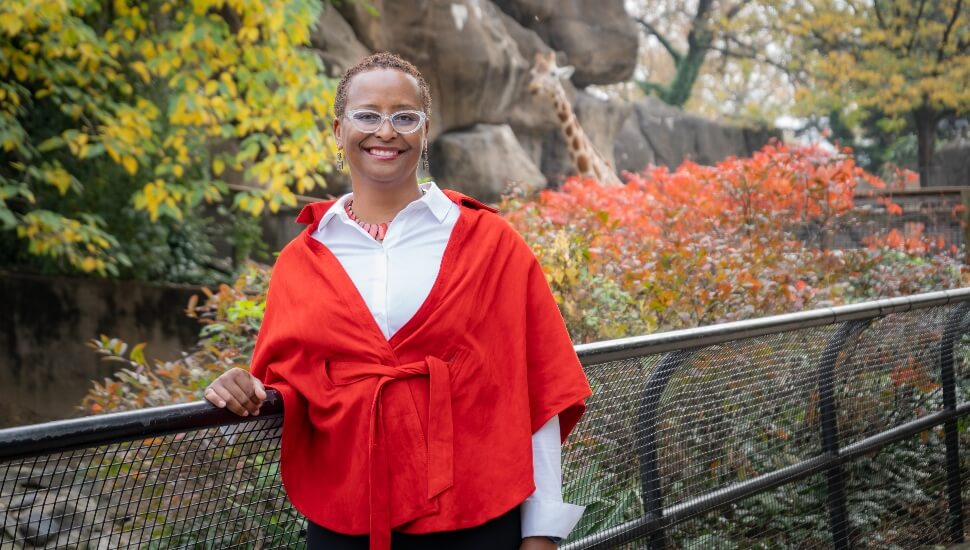
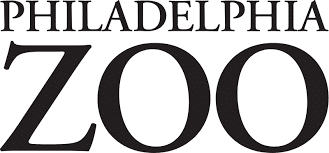
Jo-Elle Mogerman, president and CEO of the Philadelphia Zoo, spoke with VISTA Today about growing up on the South Side of Chicago. She also found herself in a range of other environments as a kid, like visiting different neighborhoods of the city with her dad for work and spending summers with her older sister in Iowa.
A self-described functional nerd, Mogerman explained why she chose Macalester College and the professor there who helped her realize that conservation biology, not field conservation, was her calling. She also discussed her priorities for the Philadelphia Zoo, what she’s enjoying about Philadelphia since moving here, and why zoos serve as a common ground.
Where were you born and where did you grow up, Jo-Elle?
I was born the youngest of three children and raised on the South Side of Chicago. My mother said they called me “the bonus.” I am 19 years younger than my sister, and my sister and brother are 18 months apart.
What did your parents do?
My mother was a keypunch operator who worked for Amoco. My father worked in facilities maintenance, janitorial, and those kinds of things, in various places. He retired from a Catholic high school that was down the street from our house.
What do you remember about growing up in the South Side of Chicago?
My mother and father got a German shepherd puppy when I was 1, so I grew up with this huge German shepherd dog. My siblings were older and were in college, so I have fun memories of braiding my dog’s hair and putting bows on him.
Unlike a lot of kids in the city, I went to a private school outside of my neighborhood. And because of my father’s work – he worked for a dump truck company that had contracted the city – I spent a lot of time in different neighborhoods. If I had a day off, I would ride around in the dump truck with him. I had friends in different neighborhoods. My mom worked downtown, so I loved to ride downtown with her.
Because of the age difference between my siblings and I, from the time I was 5 to the time I was 13, I would spend my summers in Iowa City, Iowa, with my sister. Iowa City was completely different than the South Side of Chicago. When I was in small-town Iowa, my sister said, ‘Be back before dinner.’ It was totally different exposure to a lot of different folks.
I would also, in the summers, spend a week or two with my brother, who lived in rural Wisconsin. He had three acres and had some geese, donkeys, and a random cow. I would spend summers with him somewhat terrified being a city kid because it was really dark out there. He lived in the township’s original one-room schoolhouse that, over time, had been converted to church and a residence. My brother would take me hiking and I would be scared.
Did you play any sports in high school?
I did not. I am a self-described functional nerd.
How did you distinguish yourself in high school?
I don’t know that I distinguished myself in high school. However, I just had my 30th high school reunion, and it was funny to talk to people I hadn’t seen in decades who said, “You really liked your science classes.” No one was surprised that I’m working at a zoo.
Did you have any part-time jobs in high school or college?
My mother and father believed in education. They also believed in children having the opportunity to be children. They worked hard so that I didn’t have to have a job in high school. From their perspective, I was going to have to work for the rest of my life, so they wanted me to enjoy this period.
I never had a job until I went to college and did work-study at the library. Outside of college, my first job was as a bank teller at a neighborhood bank near my house. I really enjoyed that job.
What kind of music floated your boat growing up, Jo-Elle?
I’m a child of the ’80s and ’90s, and growing up in Chicago – Chicago created house music. I grew up, in high school, going to house parties with my friends in old warehouses. House music DJs would go, and we’d dance the night and early morning away.
I’m also a huge Prince fan. Because of my summer experience going to Iowa, unlike a lot of my friends in Chicago, I also listened to rock and pop music because that’s all there was on the radio in Iowa.
What was it about Prince’s music that drew you in, Jo-Elle?
I loved the fact that he taught himself the instruments. That intrigued me because I’m not musically oriented. I love the range of his voice and how he tells stories in his songs.
Where did you end up going to college?
My mom and dad said I could apply to three colleges because that’s what they could afford for the application fees. I ended up applying to only two schools.
I applied to Cornell University, visited it, and got in there, but I decided it wasn’t for me. I sat in on a biology class and knew a bunch of the stuff, so I didn’t think the Ivy League was all it was cracked up to be.
My sister had gone to Macalester College in Minnesota, so I visited there and thought, “Oh, I’m close to Prince,” so I ended up at Macalester College. It wasn’t too far from Chicago. But I never met Prince.
Looking back, was Macalester a good choice for you?
Oh, yes! Macalester is a small, international liberal arts college. Even though it’s small, it’s always prided itself on a large international student population, which was great. It attracted people from all over the country, so I got exposure to folks from the East Coast, the West Coast, and other countries.
The first year was hard because it was the first time that I, in a living situation, wasn’t around as many African Americans. I was around people who were in college who had never met an African American person. And some of the African American people didn’t share my experience. What it did was help me learn to navigate spaces that are unfamiliar, with people who might be unfamiliar.
You found yourself in college.
I don’t know that I did. What I found was a bunch of other functional nerds. It was okay to be jazzed about what you were jazzed about. It was okay to be friends with people who were different than you.
After you got out of college, who saw promise in you?
I have always been very fortunate to have people who looked out for me and guided me. One person was my academic adviser at Macalester, Dr. Davis. In some of Dr. Davis’s classes, we were talking about things like conservation. He said, “University of Minnesota is starting this new graduate program called conservation biology. I think you would be good at it because you’re always talking about the people when we are talking about habitat destruction or animal population decline. I know someone there – why don’t you talk to them?”
He is certainly someone who opened the door to me. He helped me realize through some of his coursework that field conservation wasn’t going to be the thing for this city girl.
Who else saw promise in you?
My adviser when I was getting my master’s degree, Dr. Francie Cuthbert. He was also open to the idea that I was not your traditional field conservationist. She supported this approach that involved both conservation and education.
After that, when I went into the work world, Dr. Strahl. He was the president of the Chicago Zoological Society. He was also someone who opened a lot of professional opportunities for me.
What do you think he saw in you?
I worked at Brookfield Zoo once I came back to Chicago and started a variety of community-based education programs. I left the zoo, and he came in as the new CEO and kept asking about the programs that I had started or grown. Finally, the person who was heading up the education department said, “You know, she’s still around.” So, I came back to his office to do community work at an organizational level.
He was a conservationist from South America, and I think what he saw himself in me. As a big white guy working in the jungles of South America, we understood each other. I think what he saw in me was this desire to bring others to the table. He saw that that’s a valuable conservation tool from his own experience.
He gave me a ton of exposure to institutional planning, master planning, and bringing the community into the organization. He also asked me, “What do you want to do when you grow up?” At the time, I was teaching full-time at one of the Chicago colleges. He asked what I wanted to do, and I told him that at Macalester, there was an African American Professor with a Ph.D. – and this was the first time I had encountered this – he was teaching epidemiology. I decided I’d like to get my Ph.D., and he supported that. I ended up going back to graduate school again at the University of Illinois Chicago, working on my Ph.D. in biology with an emphasis on foraging ecology in Dr. Joel Brown’s lab.
How did you get to Philadelphia?
I was working on developing the Saint Louis Zoo WildCare Park. The Saint Louis Zoo bought 425 acres, a second campus, to do conservation breeding of endangered species and create a guest experience. It’s in an under-resourced part of the region. They understood that they wanted to do it with the community, not to the community, and that’s my sweet spot.
Then, a recruiter called and told me about this role. I knew the prior CEO, Vik Dewan. He and I had had a lot of conversations about community work. The Board was great. This is a Board that’s willing to have real conversations, to have not only a strong affinity for their zoo but for their community as well.
Here we are, a month and a half into the new year and four or five months in your new role. What are your priorities?
I have several priorities. One is getting to know the team and the Board. The second is getting to know Philadelphia. I don’t feel like I can do my job if I don’t understand what Philadelphia is, what Philadelphia wants for itself. I’m focused on getting to know the community broadly.
The third priority is getting us ready for the Association of Zoo and Aquariums accreditation, which will start in 2025. It happens every five years. The Philadelphia Zoo, in addition to being one of the oldest zoos, is one of two zoos that, once we’re accredited, will have been accredited for fifty consecutive years. In a town that loves its firsts, its longevity, and its history, that’s really important.
The other priority is to make sure the zoo is ready for the national and world stage that Philadelphia is on. I want to make sure, from our vision perspective, that we are ready to be one of the crown jewels of Philadelphia and receive all the guests that will be coming to Philly and be on their list of things to do.
Do you see yourself jumping beyond the zoo’s current footprint?
I think it’s too early to say but I will say that I don’t believe that our mission is bound to our walls. We will figure out how that shows up. It certainly shows up locally, with our relationships with West Philadelphia, and other ways, as we figure out what the Philadelphia Zoo needs to be for Philadelphia and do our part to make sure there’s a healthy planet where animals continue to grow.
As I’m getting to know Philadelphia, I think the zoo can play a role in being an animal and wildlife advocate. I’ve heard about things like increasing tree canopy. Maybe we can look at that with our animal expertise and ask, “Well, which trees are good for native wildlife?”
So, what do you do with all of that free time that you have?
Well, currently, my free time has been spent moving. I will enjoy getting to all of the museums and exploring the culinary landscape of Philadelphia. As a Midwestern girl, I am intrigued by the idea that I can drive an hour away and be in another state! One weekend, I drove to New Jersey just because I could.
My son is 14, so trying to get him to explore with me and making sure he’s transitioning well takes up a lot of free time. He’s a teen foodie, so we usually come together on different restaurants. That’s another thing that’s also selling me on Philadelphia – the richness of the city’s food scene.
What’s something big that you’ve changed your mind about over the last five or 10 years?
Coming to Philadelphia is probably the biggest, because I was pretty sure when I left Chicago that I would move to St. Louis, get this facility designed, built, and operational, and I was heading right back to Chicago. Here I am in Philadelphia! That’s the biggest thing that I pivoted on.
It’s a crazy world out there. What keeps you hopeful and optimistic?
One of the things I lean into as a zoo and aquarium professional is that we have to find common ground. When we find common ground, we can use that as a starting point.
Zoos and aquariums often are a common ground. We attract all sorts of people, and they come to see the things that they have in common – their love of animals, or it could be their love of family time.
When I go out into the zoo, I see people coming from all over, I hear different languages being spoken, I see the zebra ahead and everybody smiling and pointing. Those are the sort of things that give me hope that we can come back to figuring out what our common ground is.
Finally, Jo-Elle, what’s the best advice you’ve ever received?
My best friend, who I met on the first day of high school – her father was a quiet man. He had a man cave before man caves were a thing. I remember I was off to college, so I went by their house to say goodbye to them. He came out of the basement and said, “Jo-Elle, don’t get tricked.” And then he went back into the basement.
He meant, “You’re a young woman. Don’t get yourself in situations that become hard to get out of.” But he said it in a way where I have been in situations where his voice comes in, “Don’t get tricked.” That forces me to look a little deeper, and peel back the surface to make sure I understand the entire situation I’m in.
Connect With Your Community
Subscribe to stay informed!
"*" indicates required fields































![95000-1023_ACJ_BannerAd[1]](https://vista.today/wp-content/uploads/2023/03/95000-1023_ACJ_BannerAd1.jpg)













